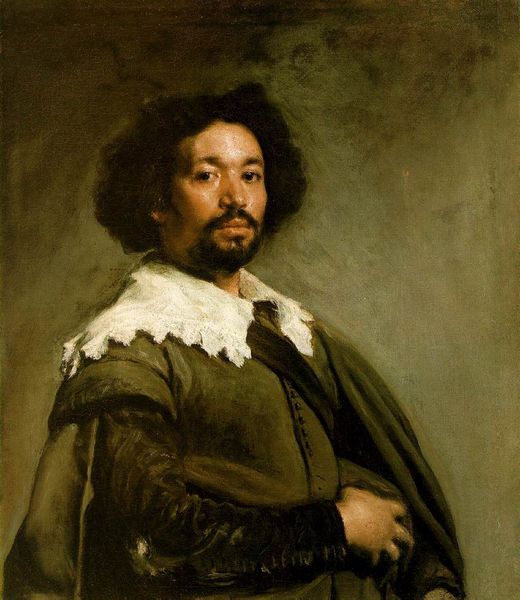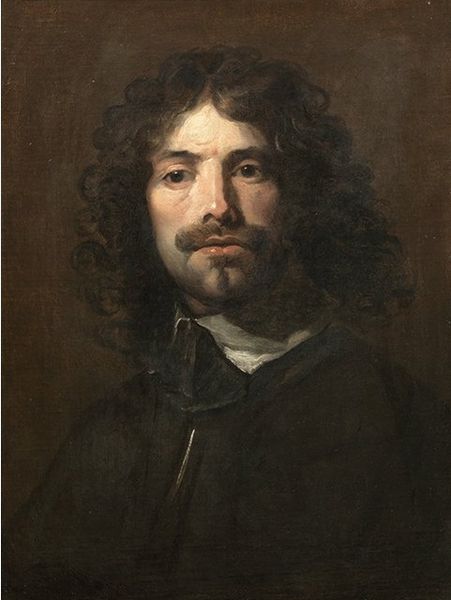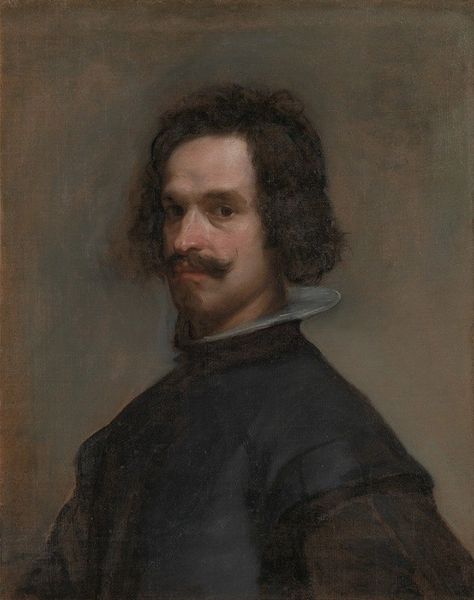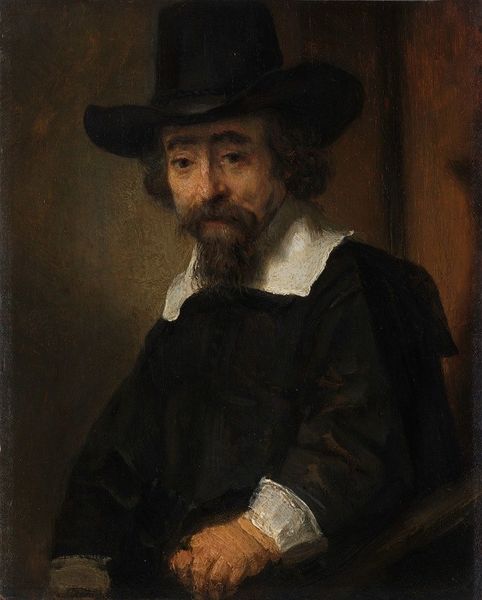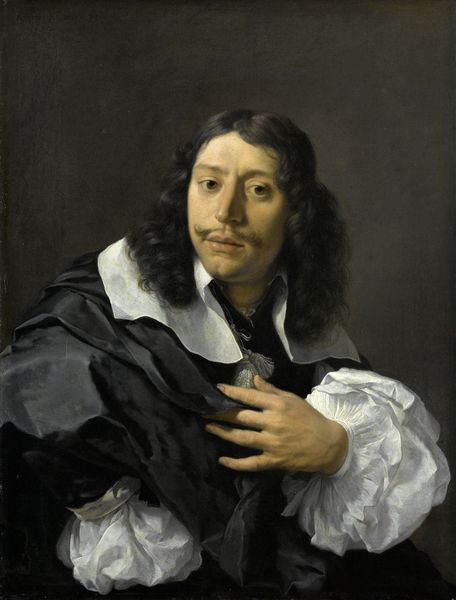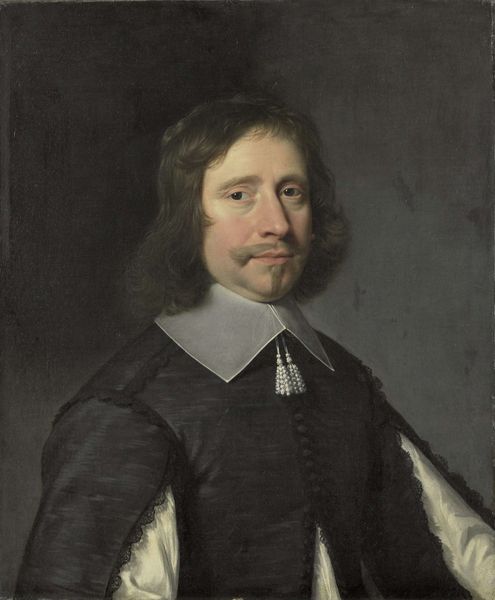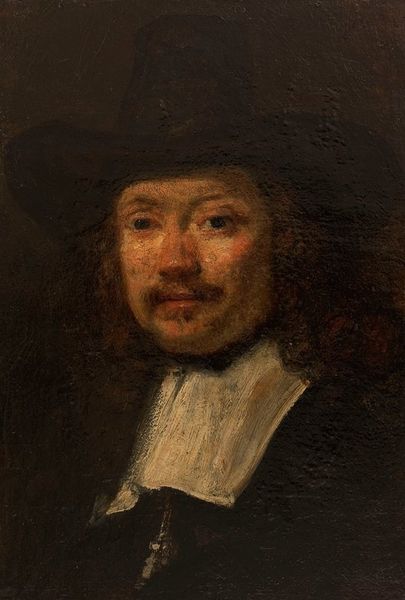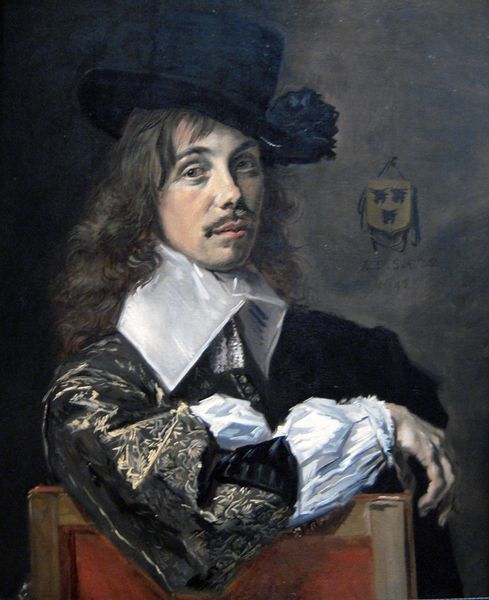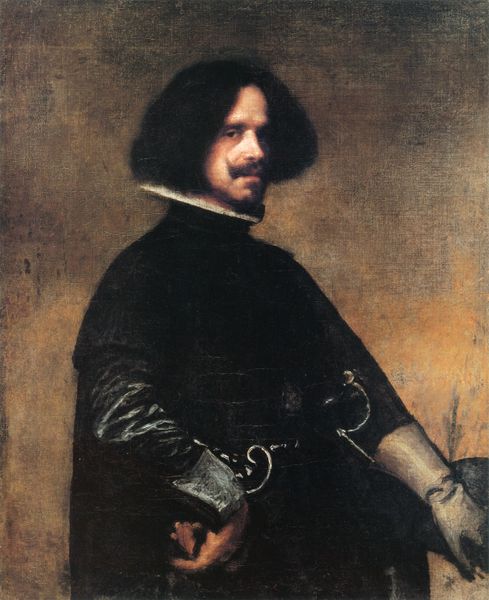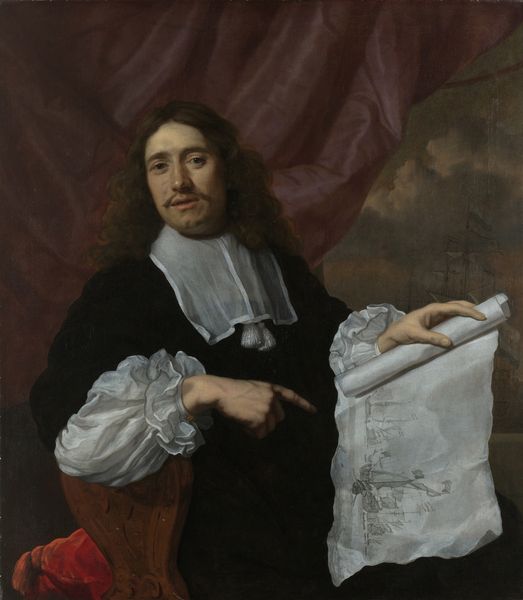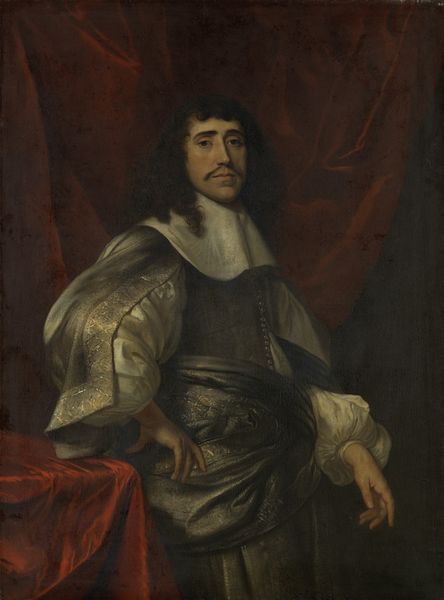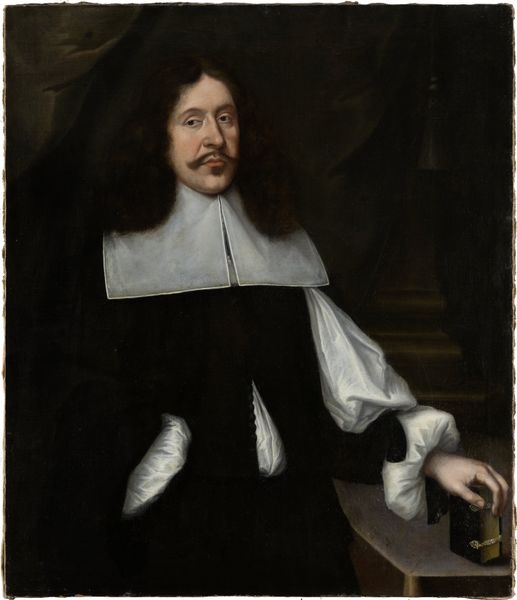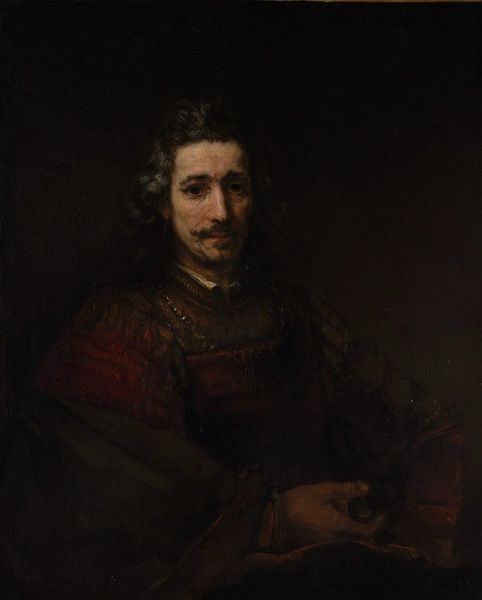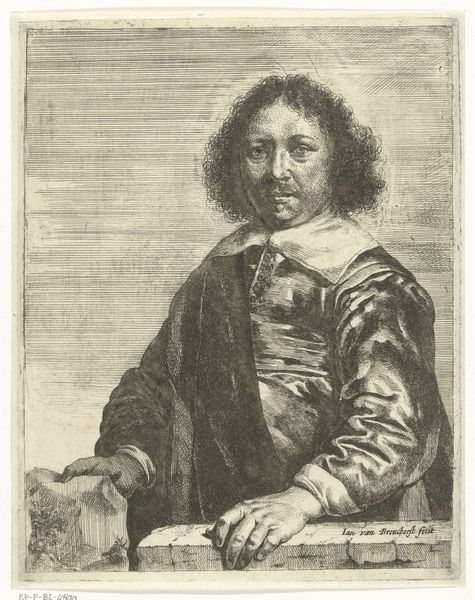
painting, oil-paint
#
portrait
#
figurative
#
character portrait
#
baroque
#
portrait image
#
painting
#
oil-paint
#
figuration
#
portrait reference
#
portrait head and shoulder
#
portrait drawing
#
facial portrait
#
academic-art
#
portrait art
#
portrait character photography
#
fine art portrait
#
celebrity portrait
Copyright: Public Domain: Artvee
Diego Velázquez painted this portrait of Juan de Pareja in Rome, sometime before 1650. At the time, both men were enslaved, though Velázquez was enslaved to the Spanish crown. Juan de Pareja was enslaved to Velázquez. In this painting, Pareja’s gaze is direct. There is dignity in his posture. Velázquez gives Pareja a lace collar, an accoutrement of wealth and status. It’s difficult not to see this painting as challenging the racial hierarchies of 17th-century Spain. Yet, it’s also difficult to ignore the power dynamics in play here. As the enslaved person of the artist, Pareja had little say in this representation. It is said that Velázquez displayed this painting as a trial run for his portrait of Pope Innocent X. It allowed him to refine his technique before painting someone of great social importance. The complex layers of race, power, and artistic intention give this painting an emotional depth that continues to resonate today.
Comments
No comments
Be the first to comment and join the conversation on the ultimate creative platform.
